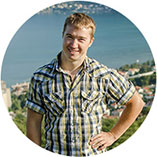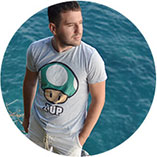Цель заброшена
Автор не отписывался в цели 6 лет 10 месяцев 17 дней
Complete ENGL 99 Course
Hey, guys, welcome to my goal!
ENGL 99 is the subject in American college educational program to build English writing skills.
I decided to complete the typical ENGL 99 program, and that's sound fun for me.
Here I use this book as a source of reading materials, and my own hands and mind to complete all assignments.
I work on it just with myself and by myself, that's because I'd appreciate your help in any kind.
If you want to join me, correct my mistakes, write the comment or just wanna chat with me, feel free to write!
Please, write in English only. Let's get our English communications productive and effective!
Критерий завершения
I've done all assignments and essays of ENGL 99, improved my writing skill as a result
Личные ресурсы
Time: 1-2 h at work, 26 working days overall
Great desire to complete the guide to high-level Writing English.
-
Week 1
- Writing Prompt #1: Who inspired you to go to university?
- Reading Essay #1: Amy Tan - Mother's Tongue.
- Reading Essay #2: Richard Rodriguez - Aria: Memoir of Bilingual Childhood.
- Writing Prompt #2: How to define an inspiration?
- Essay #1: Describing our Inspirations.
-
Writing Prompt #1
-
Writing Prompt #2
-
Essay #1
-
Week 2
- Reading Essay #3: Annie Dillard - Seeing
- Writing Prompt #3: Improving part 2 of Essay #1
- Writing Prompt #4: Improving part 3 of Essay #1
-
Writing Prompt #3
-
Writing Prompt #4
-
Week 3
-
Writing Prompt #5
-
Writing Prompt #6
-
-
Week 4
-
Writing Prompt #7
-
Writing Prompt #8
-
Essay #2
-
-
Week 5
-
Writing Prompt #9
-
Writing Prompt #10
-
-
Week 6
-
Writing Prompt #11
-
Writing Prompt #12
-
Midterm Portfolio & Reflection, Peer Letter
-
-
Week 7
-
Essay #3
-
-
Week 8
-
Writing Prompt #13
-
Writing Prompt #14
-
-
Week 9
-
Writing Prompt #16
-
Research
-
-
Week 10
-
Writing Prompt #17
-
Final Reflection
-
-
Week 11
-
Writing Prompt #18
-
Writing Prompt #19
-
-
Week 12
-
Practice Final
-
-
Week 13
-
Writing Prompt #20
-
-
Week 14
-
Final Exam
-
- 1453
- 14 января 2019, 09:22
Не пропустите новые записи!
Подпишитесь на цель и следите за ее достижением



